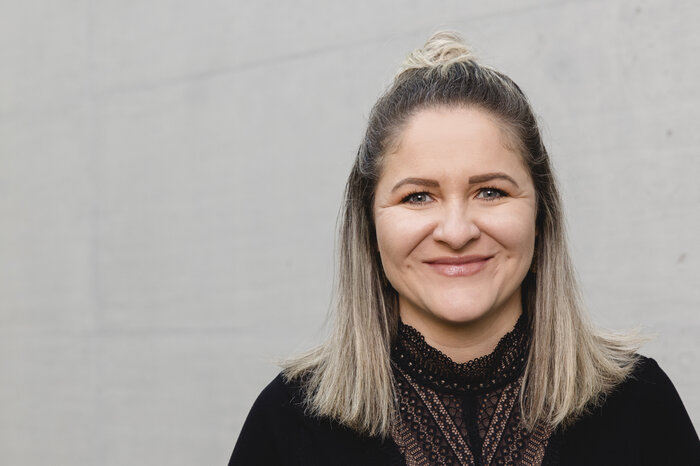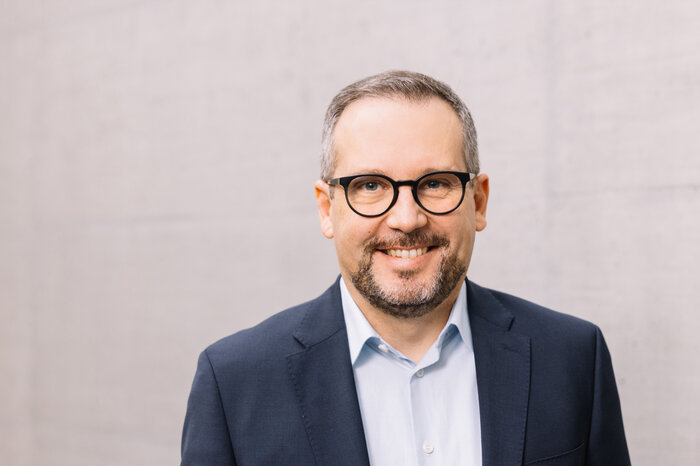Business Informatics - Digital Transformation
Master's degree, part-time
The Master's degree programme in Business Informatics offers comprehensive training at the intersection of business and computer science. You will acquire in-depth knowledge and skills in areas such as computer science, business informatics, change management, organisational development, and leadership. Through practice-oriented projects and interdisciplinary courses, you will learn how to successfully implement digital transformation within companies.
Upon completion of the programme, you will be able to develop and implement complex IT solutions for the business world. You will be equipped to strategically shape corporate portfolios, introduce organisational concepts, and make informed technology decisions – helping to lead companies into a digital future.
The 120 ECTS credits are distributed over four semesters, including compulsory modules, elective modules, and the master's thesis.
Elective Modules – 2nd to 3rd Semester
You choose from a range of elective modules during your first semester (within the ECTS credits allocated for each semester).
Contextual Studies
You select your contextual studies courses one semester in advance, until you have completed the total of 12 ECTS credits required.
(We recommend registering for 6 ECTS per semester.) ▷ More information
ECTS
ECTS stands for European Credit Transfer and Accumulation System. In line with international standards, 120 ECTS credits must be earned over four semesters.
Course content
CS | Contextual Studies: Selection of 1 or 2 modules totaling 6 ETCS.
General information on contextual studies and how you can choose the subjects in contextual studies can be found here.
ECTS: Credit points based on the European Credit Transfer System (ECTS). Consistent with international standarts, 30 ECTS points ca be earned each semester.
The Master's programme in Business Informatics – Digital Transformation is specially tailored to working professionals and allows you to optimally combine your studies, career and private life.
Courses and examinations take place:
- Thursdays 01:00 PM - 10:00 PM
- Fridays 08:00 AM - 06:00 PM
- Block system ensures that examinations are not concentrated at the end of the semester
Ideal for those working 50–80% and with approx. 5 days of holiday per year for their studies
- Admission to the final oral examination:
- all courses in the curriculum must have been successfully completed (examination regulations and grading scale) and
- the Master's thesis must have been graded positively.
- Degree awarded: Master of Science in Engineering, MSc
- Level of the degree according to the national and European qualifications framework: Master's degree (2nd study cycle)
- Field of study according to ISCED-F code: 0688 - Information and Communication Technologies
Career opportunities after graduation
Specialists and managers with interdisciplinary skills in management and engineering who strategically steer and successfully implement digital change are in high demand on the job market. This future-oriented field is growing dynamically and opens up numerous career opportunities and attractive prospects for advancement. Typical areas of responsibility include activities in management consulting, management positions in the field of information and communication technology, and the management of complex IT and organisational projects.
In addition, the degree qualifies you for a supplementary doctoral or PhD programme at a technical university.
Business Informatics - Digital Transformation student stories
Why study Business Informatics at the FHV?
- A holistic approach to digital transformation processes – from technical, business, and organisational perspectives – is at the heart of this programme.
- From the very beginning, we combine research and practice through project-based work. Connections with companies and the business world develop naturally in the process.
- We welcome a diverse group of participants, including computer scientists, business informatics specialists, business professionals with a strong interest in IT, and industrial engineers. This diversity fosters creativity and innovation.
- You will have the opportunity to work on real-world problems, using a structured, methodical approach in a team setting.
- FHV’s Master’s programmes offer an exceptionally interdisciplinary range of elective modules ▷ To the Context Studies
- The proportion of external lecturers from leading industrial companies in the region and renowned international institutions is remarkably high.
- The programme structure is designed to support a balance between career, study, and family life.
- Access to knowledge shouldn't be expensive – currently, no tuition fees are charged for this programme.
Access and application
The Master’s degree programme Business Informatics – Digital Transformation requires the following qualifications or competencies:
- Completion of a relevant Bachelor’s or Diploma degree in Business Informatics, Business Administration, or Computer Science,
- Completion of a fully equivalent degree or of a degree at NQR Level 6 (Bachelor’s)
Full equivalence of a prior degree is considered fulfilled if the following achievements, amounting to at least 30 ECTS credits, have been completed or acquired as additional qualifications:
| Minimum ECTS | From each of the following subject areas |
| 6 | Business Informatics, in particular Information Systems, Business Process Management and Project Management |
| 6 | Business Administration, in particular Fundamentals Economics and Financial Management |
| 6 | Computer Science, in particular Information Technologies, Data Management and Programming/Software Development |
| 6 | Mathematics, Business Mathematics, Statistics |
Full equivalence of a prior degree combined with professional experience is recognised if the relevant professional experience amounts to at least 4,500 hours and dates back no more than three years.
- completed Bachelor’s or Diploma degree plus relevant professional experience
Full equivalence of a previous degree plus professional experience is considered fulfilled if the relevant professional experience amounts to at least 4,500 hours and dates back no more than three years.
Definition of relevant professional experience:
Professional experience is recognised as relevant if it can be demonstrated in occupational fields that correspond to two of the four core areas of the degree programme:- Digital Business Management and Development
- Leadership and Organisational Development
- Data and Knowledge Engineering
- Information Systems Management and Engineering
The decision on the relevance or equivalence of the previous qualification, and therefore on admission to the programme, lies with the programme director.
For admission, proof of language proficiency at level B2 in both German and English (according to the Common European Framework of Reference for Languages) is required.
FHV's application periods are structured as follows:
Application Period I: 15 November – 1 March
Apply by 1 March to benefit from an early admission decision.
Application Period II: until 31 May
You can apply for all study programmes regularly until 31 May.
Application Period III: until 31 August
Some programmes may still offer individual places until 31 August.
Important information:
The application deadline for applicants from third countries (non-EU/non-EEA, except Switzerland) is 1 March.
Two steps to your desired degree at FHV:
Step 1:
Assessment of your complete application documents, your prior education, and relevant experience.
Step 2:
In a personal admission interview, we get to know you better – your goals, your motivation, and your reasons for choosing this degree programme.
In parallel to your application at FHV, you also apply to a partner company to secure your training position.
Special Provisions: If you hold a qualification from a higher vocational secondary school (e.g. HTL, HAK), certain courses may be individually credited towards your degree. Details will be discussed with the programme director during a personal consultation.
Do you still have questions about the study programme?
For a personal consultation, please contact us directly:
|
Monday to Thursday |
8:30 - 11:30 am |
or individual appointment



